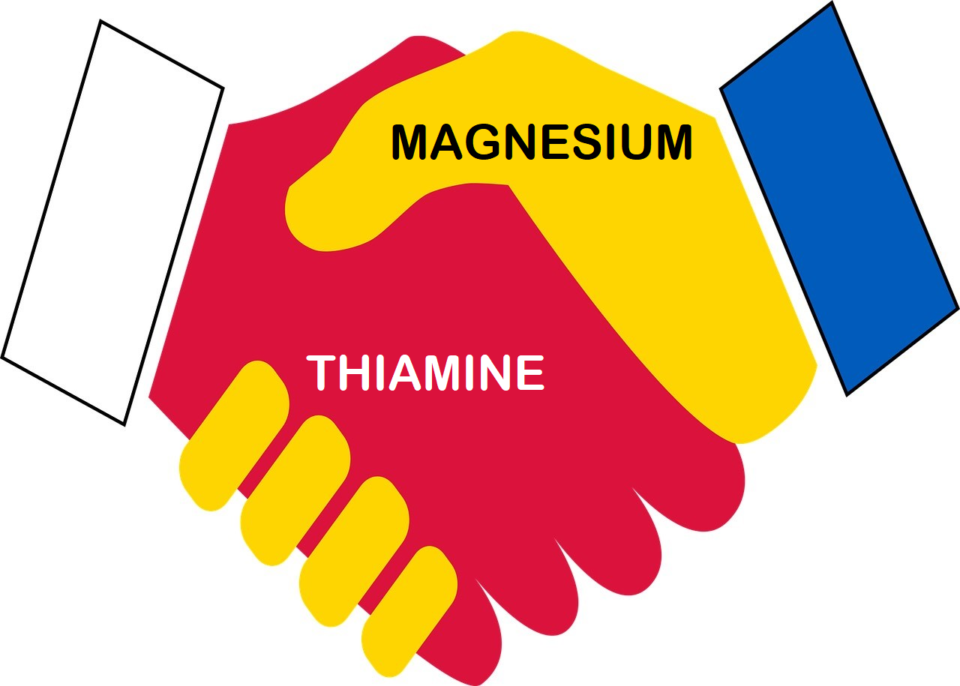
Jot this down as one of those things that we learn and excel at in biochemistry class but later forget when it’s time to correlate while practicing real world medicine – Thiamine is handicapped & hamstrung without Magnesium. Thiamine needs it’s BFF Magnesium to change into it’s bioactive form Thiamine PyroPhosphate or TPP. TPP in turn also needs Magnesium for TPP-dependent enzymes for glucose metabolism (Krebs, pentose pathway , etc ) which plays into several important processes including ATP aka energy generation for all our body cells.
So a logical next thought is can a person can have a normal thiamine levels and yet manifest Thiamine deficiency if Magnesium levels suck ??? Yes indeed !!! A 2016 case report published on BMJ in 2016 showed how thiamine-refractory Wernicke’s encephalopathy was reversed with Magnesium. One case is not good enough, so here is another and one more !
It also follows then, that in conditions where Thiamine is expected to be low or be consumed fast, always check on Magnesium and supplement it when low (We covered IV Magnesium and Oral Magnesium earlier on this fantastic blog 😎). This also explains why Magnesium can be expected to get depleted in re-feeding syndromes!
This Thiamine-Magnesium dependence does not seem to be that well known in clinical circles – an observational study of 127 patients presenting to ED for Alcohol Withdrawal published in 2019 showed that while 99% patients had thiamine phosphate levels in normal range, 70% of them were prescribed thiamine, but while 60% of them had low magnesium concentrations, only 7% of them were prescribed magnesium. In the same study, patients low on magnesium correlated with more severe alcohol withdrawals and increased 1-year mortality.
Don’t miss these fun posts! Subscribe via email 📩 | |
